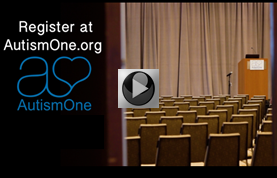Share
Five Simple Steps to Designing Effective Employment for Individuals with Autism Spectrum Disorders
When considering how to better equip individuals with autism spectrum disorders to attain and maintain employment, I discovered it is not mainly requirements in learning the job task, memorizing social skill scripts, giving eye contact, or attainment of independent-living skills that matter most. Unfortunately, requiring the young adult to reach success in each of these areas as a set criteria before receiving training for a job can actually jeopardize any employment outcome.
I learned from research and experiential knowledge that effective employment outcomes for youth with ASD boil down to five simple action steps. They have greater chances getting hired and maintaining employment opportunities when they have:
1. Exposure to diverse settings. This increases self regulation and flexibility to adapt.
2. Opportunity to participate in an activity or setting with choice, purpose, and meaning.
3. Continuous practice of 27 soft vocational skills found in the Capability Approach Model, a) such as accommodating to new situation and new and unfamiliar people, b) expressing one’s own thoughts and ideas, and c) considering options and making choices. It is important to practice these vocational soft skills and many more within different settings and with different people.
4. Practice each soft vocational skill with one or more of the four support contributors from the Broad Creative Support System as part of the Capability Approach.
5. Pursue purposeful activities, and if at all possible connect with the young adult’s identified strengths and interests, making experiences memorable, meaningful, and achievable.
This is the exciting part, when the young adult receives positive feelings from these experiences, capability or accomplishment is more likely. During their active involvement, genuine impressions often accompany each of these five action steps, then effective employment outcomes are more attainable for the young adult.
-As a professional do you have ASD students or clients and seek more positive outcomes in their daily living or employment options?
-Do you have a son or daughter with ASD and want to prevent mental health inactivity, depression, or imbalances? Want positive ways to reach life and employment goals?
If you can answer YES to these questions, and want to obtain additional information, contact me
Dr. Jacquelyn M. Marquette at 502.417.6063 or jackie@drjackiemarquette.com





